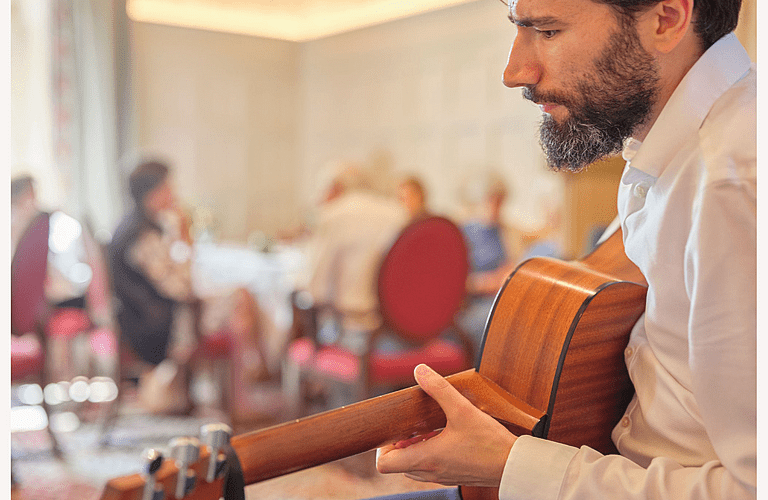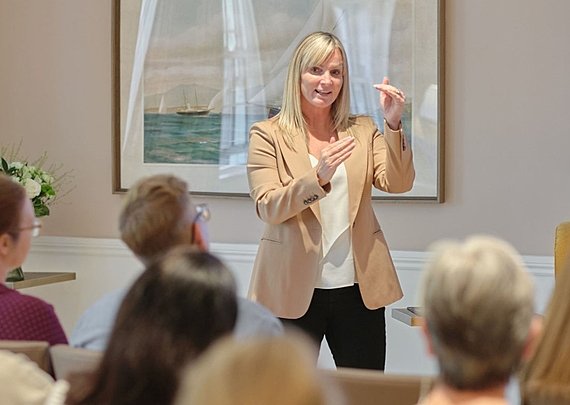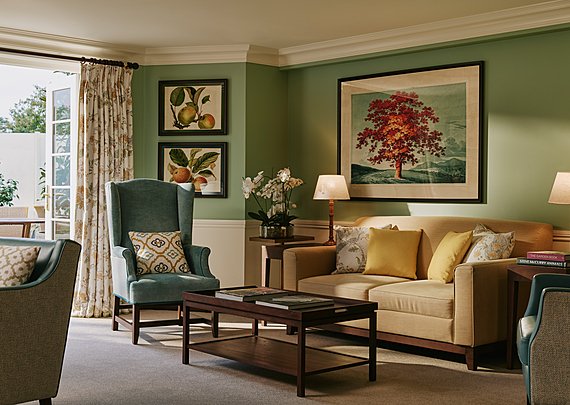192 Sloane Street, London SW1X 9QX

How Music Enhances Care for Older People
Music has long been celebrated as a powerful tool for enriching wellbeing and quality of life. In recent years, there's been growing interest in using music to support residential care for older people in the UK, particularly for those living with age-related conditions such as arthritis, cardiovascular conditions, and dementia. This article explores the myriad ways in which music can benefit older adults, from improving cognitive function to lifting spirits and fostering social connection.
The Power of Music in Care
Music offers a unique way to connect with older adults, providing comfort, joy, and stimulation. Whether through listening, singing, playing instruments, or composing, musical activities can be tailored to meet the individual needs and preferences of each person. In the context of older adult care, music can take various forms, including:
- Music therapy sessions led by qualified professionals
- Group singing or instrumental activities
- Live concerts and performances
- One-to-one music enjoyment with carers or musical practitioners
- Creation of personalised playlists
How does music benefit older adults?
The benefits of music for older adults are wide-ranging and well-researched. Research has shown that music can:
Lift spirits and alleviate depression
Listening to familiar music or participating in group singing sessions can boost mood and alleviate symptoms of depression in older adults.
Enhance cognitive function
Regular engagement with music can help maintain and even improve cognitive abilities in older adults, including those with mild cognitive impairment.
Soothe anxiety and promote relaxation
Music has been shown to decrease anxiety and stress levels in older adults, helping them feel more at ease in their environment.
Foster social connection
Group music sessions provide opportunities for meaningful social connection, helping to combat loneliness and isolation among older adults.
Improve physical function
Rhythmic music can inspire movement and improve coordination, potentially reducing the risk of falls in older people.
Enhance communication
For those with speech difficulties, music can provide an alternative means of expression and connection.
Reinforce sense of self
Familiar songs can trigger memories and emotions, helping individuals reconnect with their past and strengthen their sense of identity. While familiar songs can evoke memories and emotions, it's important to note that improvised music making and completely new music also play a vital role. These musical experiences can spark creativity and foster unique connections.
How can music improve the quality of life for people living with dementia?
For people living with dementia, music can be particularly beneficial. Music has the power to reach parts of the brain that remain relatively unaffected by dementia, allowing individuals to connect with memories and emotions that may otherwise be difficult to access. This can be an important part of dementia care, helping to calm, soothe and stimulate. Some of the ways in which music can enhance the lives of those living with dementia include:
- Reducing behavioural and psychological symptoms: Music has been shown to decrease agitation and wandering behaviours in individuals living with dementia.
- Improving mood and reducing depression: Engaging with familiar music can evoke positive emotions and memories, helping to alleviate symptoms of depression.
- Enhancing communication: Even when verbal communication becomes difficult, individuals living with dementia may still be able to engage with music, providing a means of self-expression.
- Maintaining cognitive function: Regular participation in musical activities can help maintain existing skills and potentially slow cognitive decline. In fact, research cited by Music for Dementia found that regular singing or music listening sessions over 10 weeks improved general cognition, attention, and executive function in people with early dementia compared to standard care.
- Promoting social connection: Group music sessions can foster a sense of community and belonging among individuals living with dementia.
How KYN Incorporates Music in Our Care Homes
At KYN, we recognise the immense value of music in the care we provide. Our dedicated care home teams work tirelessly to integrate music into the daily lives of our residents, creating personalised programmes that honour each individual's unique musical preferences and needs. Our comprehensive music programme includes:
- Musician residencies: Professional musicians regularly visit our homes to perform and engage with residents.
- Live music concerts: We host a variety of live performances, bringing the joy of music directly to our residents.
- Interactive music sessions: Residents can participate in group singing, instrumental play, and other music-making activities.
- One-to-one music enjoyment: Our musical care practitioners new this year provide personalised music experiences. These dedicated professionals bring a wealth of musical talent and have experience working with people living with dementia. They are responsible for delivering both one-to-one and group music sessions with residents.
We collaborate with esteemed organisations such as Songhaven and Live Music Now to bring high-quality musical experiences to our residents. Our approach combines elements of music therapy with other music-based interventions, ensuring a rich and varied musical environment. By embracing the transformative power of music, we strive to create more joyful, engaging, and fulfilling experiences for older adults in our care.
KYN's Music Care Practitioners
At the heart of our music programme are our dedicated music care practitioners. These professionals bring a wealth of musical talent and experience to our homes. They have experience working with people living with dementia and are responsible for delivering both one-to-one and group music sessions with residents. To learn more about how KYN incorporates music and other innovative approaches to older person care, please contact us. We would be delighted to discuss how we can support your loved one's journey through later life with compassion, expertise, and a commitment to enriching lives through the universal language of music.

